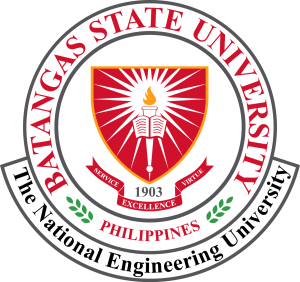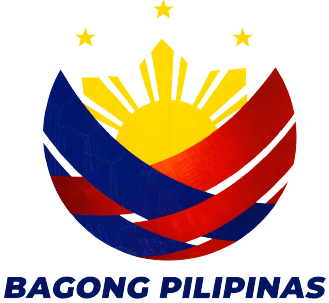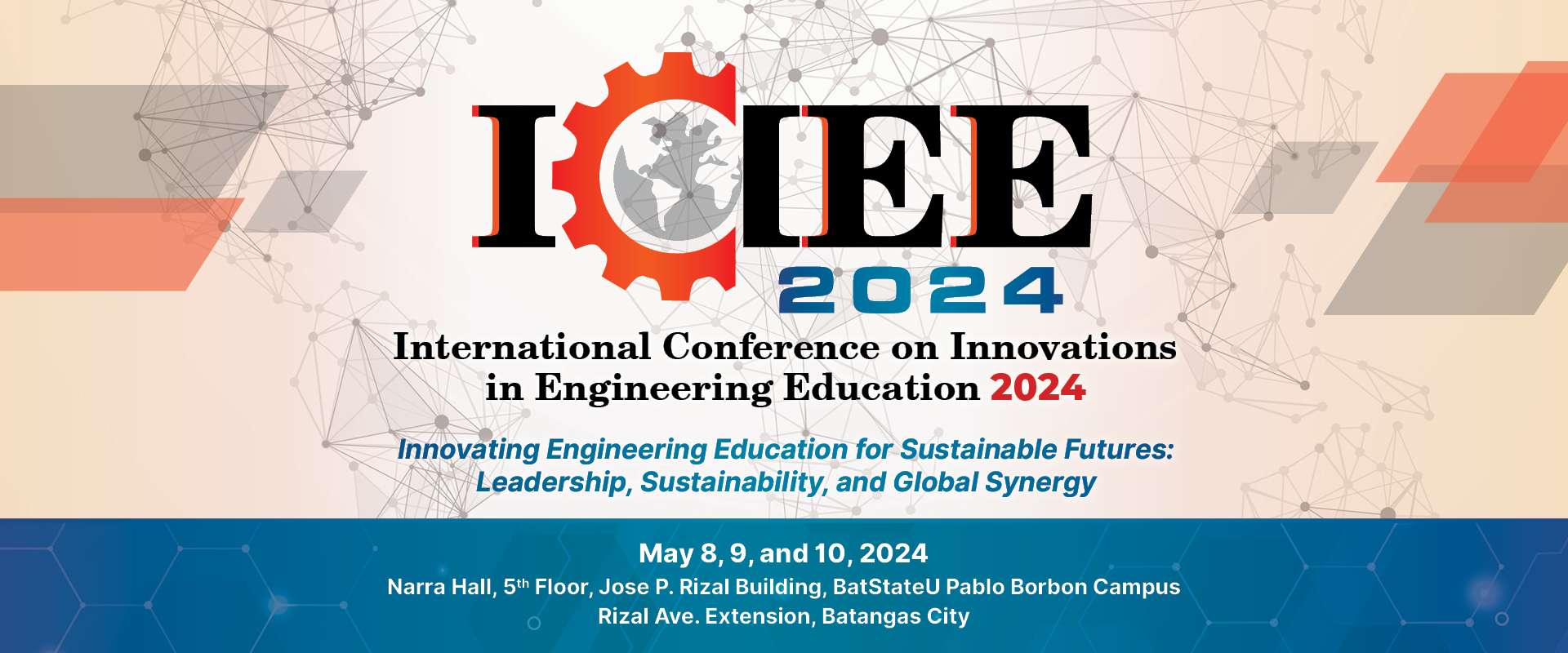
CONFERENCE BRIEF
The International Conference on Innovations in Engineering Education (ICIEE) 2024, themed “Innovating Engineering Education for Sustainable Futures: Leadership, Sustainability, and Global Synergy,” emphasizes the necessity for ongoing advancements in engineering education — an imperative driven by the challenges presented by our rapidly changing world.
At ICIEE 2024, we are poised to present the current engineering education models with the pivotal question: “Are we adequately preparing our engineers with the skills required for both creation and sustainable development?”
The progressive transformation of engineering education, transitioning from apprenticeship models to formal university-based instruction, and evolving further towards hybrid-modality and experiential learning methodologies, is evidence of its inherent nature of innovation over the centuries. This evolution has been in direct response to the changing needs of society, technological advancements, and the emergence of global challenges. By comprehending the future landscape, we can gain valuable insights into the directions that innovations in engineering education must take to remain relevant, effective, and valuable.
This conference will thus navigate us through the current landscape, marked by emerging trends and challenges including the integration of digital technologies, a focus on sustainability, ethical considerations, and the need for interdisciplinary approaches. Participants will engage in in-depth discussions focused on the utilization of emerging technologies, such as artificial intelligence (AI) and principles of sustainable design, in the engineering curriculum.
Moreover, ICIEE 2024 is committed to enhancing the essential human competencies critical for global leadership. Proficiencies such as teamwork, communication, and cross-cultural understanding have become increasingly vital in a world where globalization has diminished the traditional barriers between sectors and nations. The synergy among educational institutions, the industry, and government bodies is indispensable for formulating comprehensive, organizational strategies aimed at innovating engineering education sustainably and effectively.
As a platform for initiating change, ICIEE 2024 presents a structured forum designed to advance and enrich the education and training of engineers for the 21st century. The conference is set to host a varied program of sessions, including plenary talks, panel discussions, masterclasses, and workshops. These engagements are carefully curated to foster conversation, promote leadership, and facilitate synergy, guiding us toward a future anchored on economic, environmental, and societal sustainability.
As The National Engineering University dedicated to developing leaders in the global knowledge economy, Batangas State University shall “strengthen engineering programs through the development and offering of industry-driven and emerging engineering programs; spearhead collaboration between the academe and engineering industries; and lead in the implementation of innovative pedagogies in engineering education through the Center for Innovation in Engineering Education.” [Republic Act No. 11694 (2022). “Revised Batangas State University Charter,” Section 3(c). Approved April 11, 2022. Philippines.]
THEMATIC AREAS
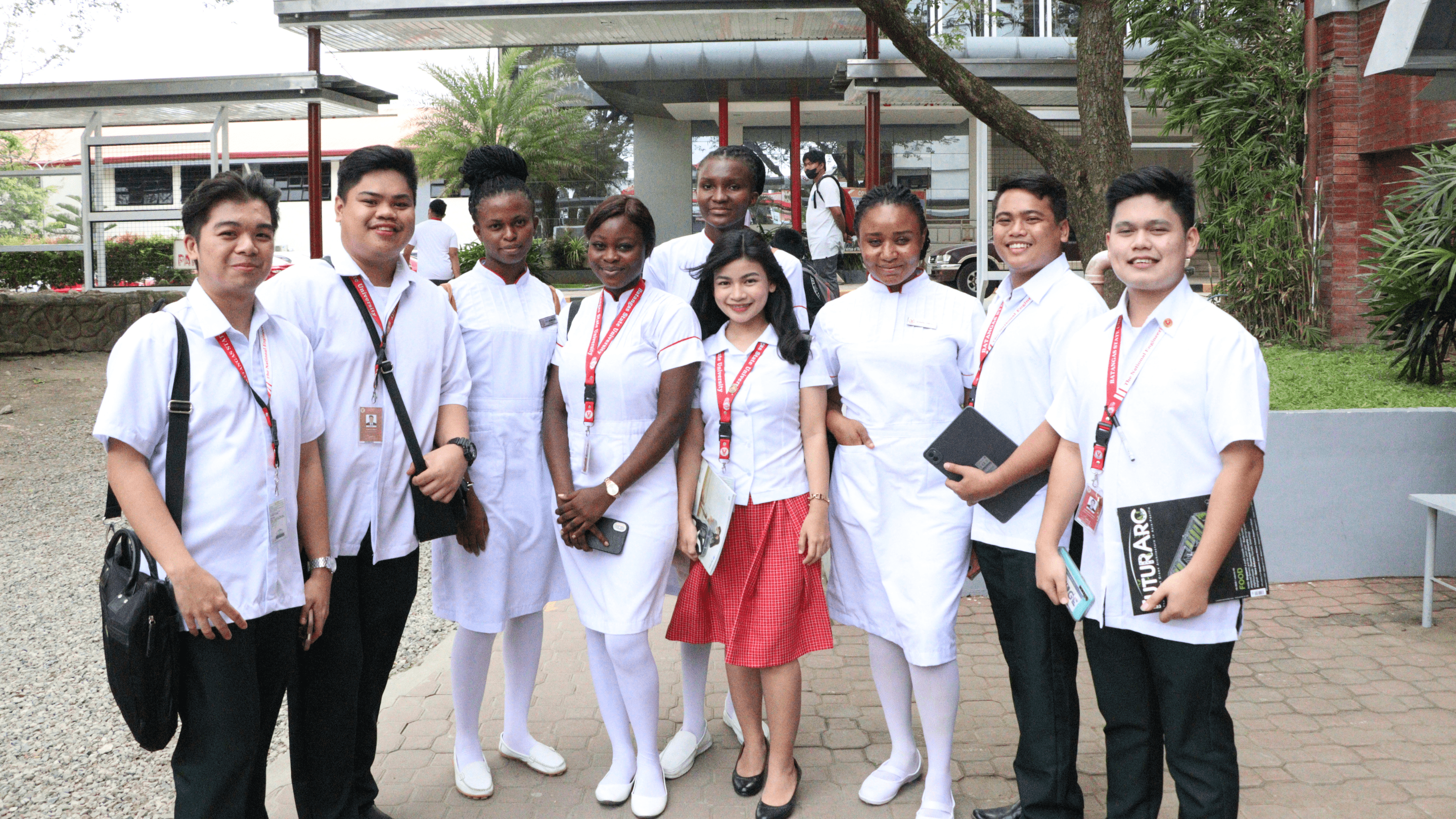
The imperative for global alignment and innovation in engineering education is driven by the profession’s growing interconnectivity, the projected significant growth of the engineering sector due to technological advancements, sustainability challenges, and innovation, and the increasing cross-border mobility of engineering professionals. With numerous engineering education authorities worldwide as with the various intersecting standards and accreditation systems, the need for a unified approach is urgent.
This keynote will explore how the GAPC framework, supported by international accords such as the Washington, Sydney, and Dublin Accords, sets a competence baseline for engineering graduates. With the support of the World Federation of Engineering Organisations (WFEO) and UNESCO, the IEA's efforts are crucial in aligning engineering education with global sustainability goals, offering attendees deep insights into the implementation and impact of these standards in higher education.

There is a growing shared transformative agenda for engineering education, one that transcends traditional boundaries to embrace leadership, diversity, and innovation.
“Empowering Change” serves as a conceptual framework for exploring how engineering can evolve to meet the demands of a rapidly changing world, focusing on leadership that is transformative by nature, inclusive practices that enrich the engineering profession, and collaborative strategies that redefine educational content. This collective of sessions lays the groundwork for discussions that navigate the complexities of integrating diverse perspectives and addressing global challenges through education, ultimately aiming to prepare future engineers to become actively involved in a world of technology-enabled sustainability. Through this lens, the subtheme aims to foster a dialogue on the flexible and dynamic roles that educational institutions play in advancing sustainable development and how they can effectively respond to the evolving expectations of the engineering profession.

“Sustainability in Engineering Education” delves into the transformative potential of integrating sustainability principles within engineering curricula. This subtheme posits education as a fundamental catalyst for embedding sustainable practices in engineering, preparing future professionals to navigate and mitigate the multifaceted challenges of environmental stewardship, social responsibility, and economic viability. It emphasizes the imperative for academic institutions to evolve, ensuring that the next generation of engineers is equipped with the knowledge and skills to drive forward innovations for a sustainable future, ultimately fostering a world where engineering solutions harmonize with the principles of sustainable development.

Crafted to elevate the strategic, systemic, and design-oriented thinking capacities of academic leaders within the engineering education domain, innovative thinking imbues participants with the foresight and creativity needed to navigate and shape the evolving landscape of engineering education. Through a series of focused workshops, leaders are encouraged to explore and apply innovative thinking modalities to foster educational environments that are responsive, sustainable, and aligned with future challenges and opportunities. This initiative seeks to empower leaders to drive meaningful change, ensuring engineering education remains at the forefront of technological and societal advancements.
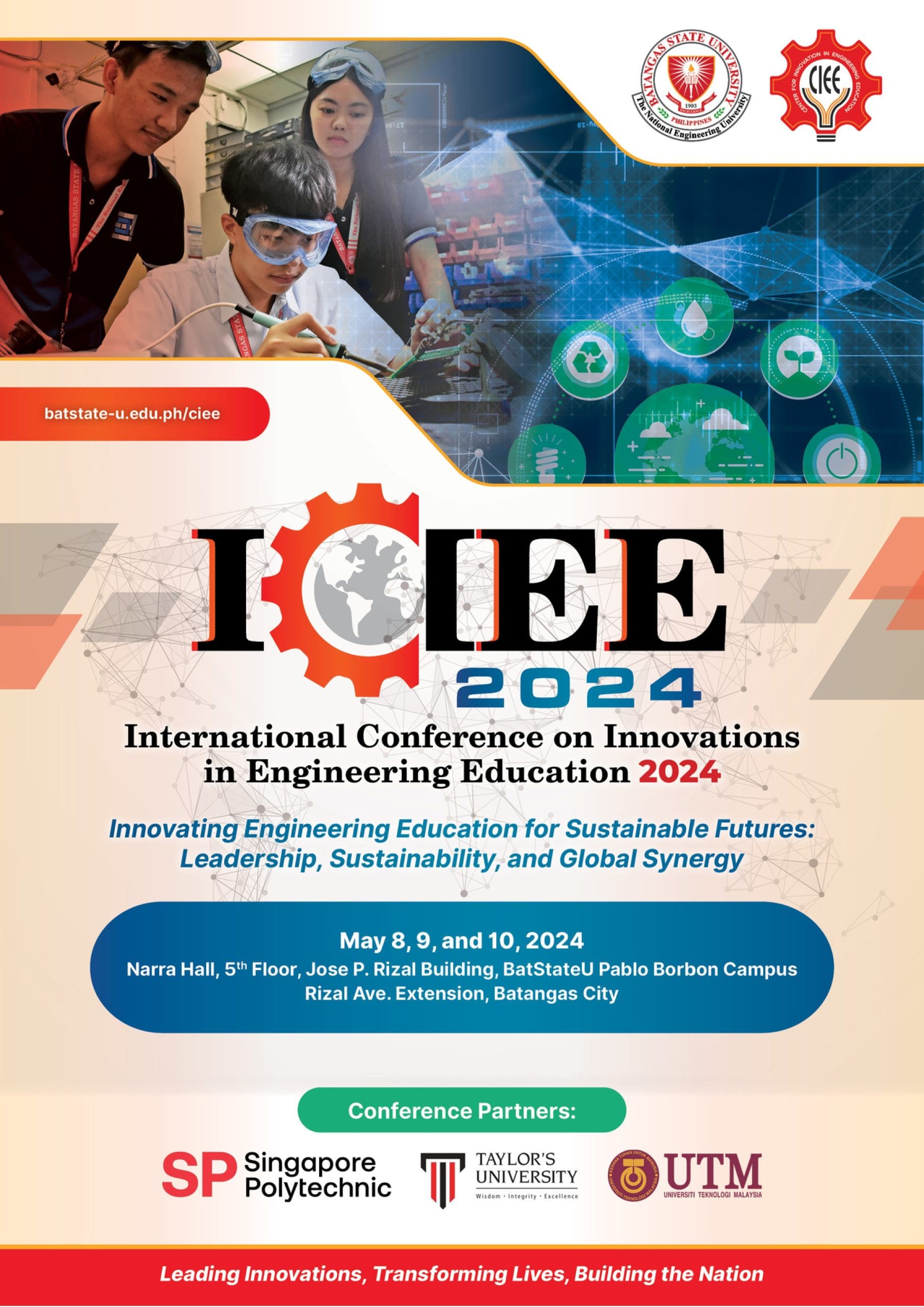
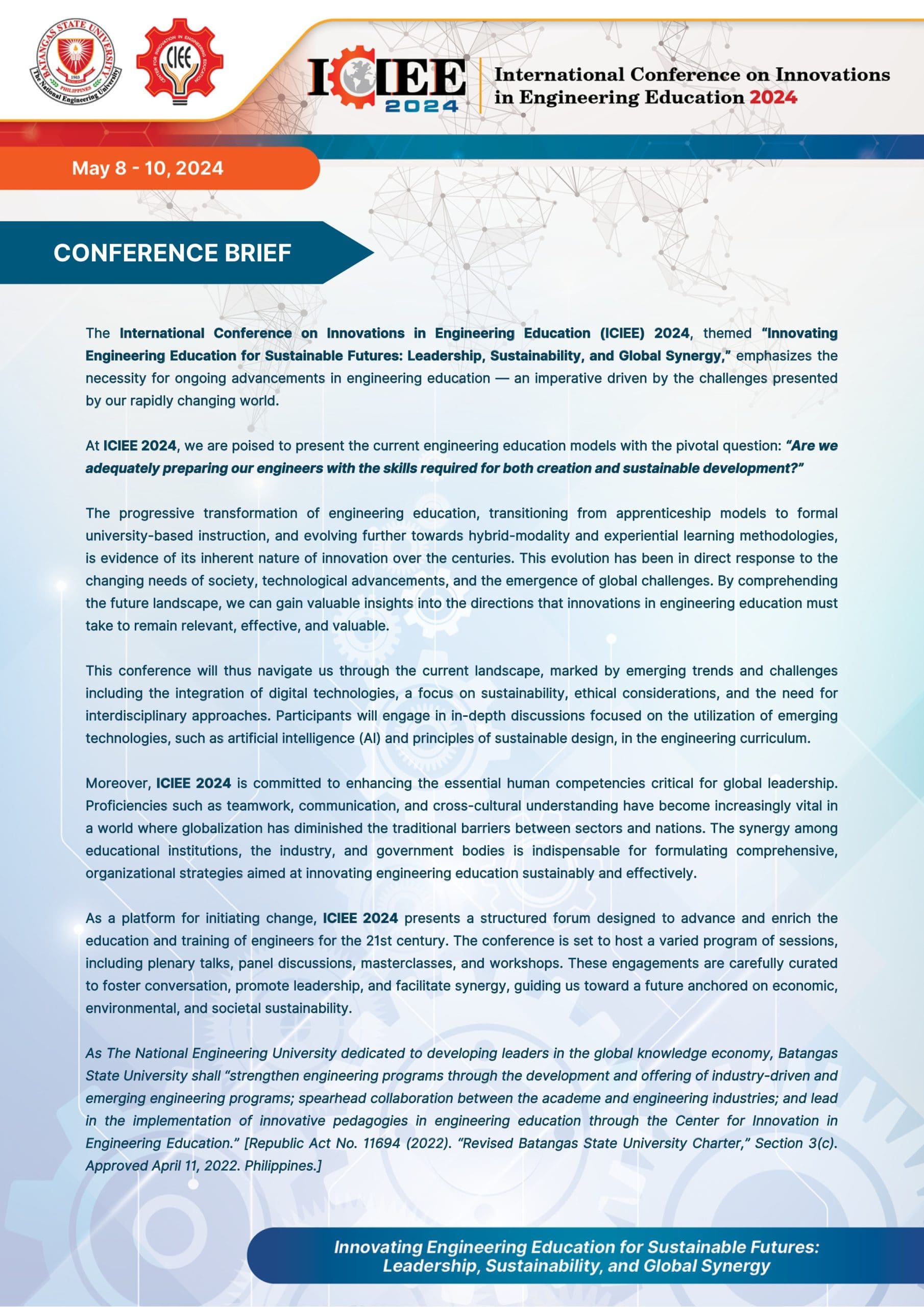
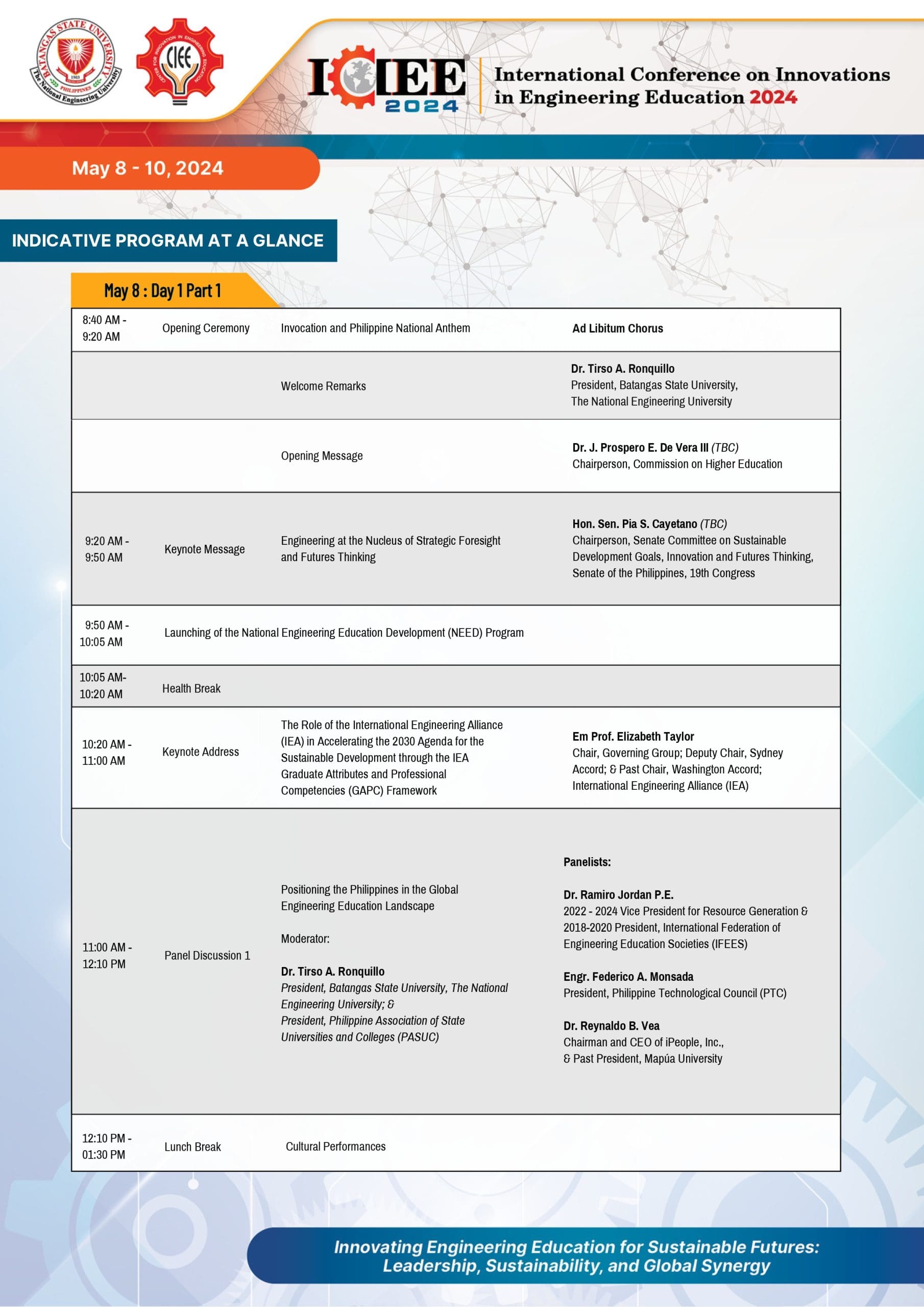
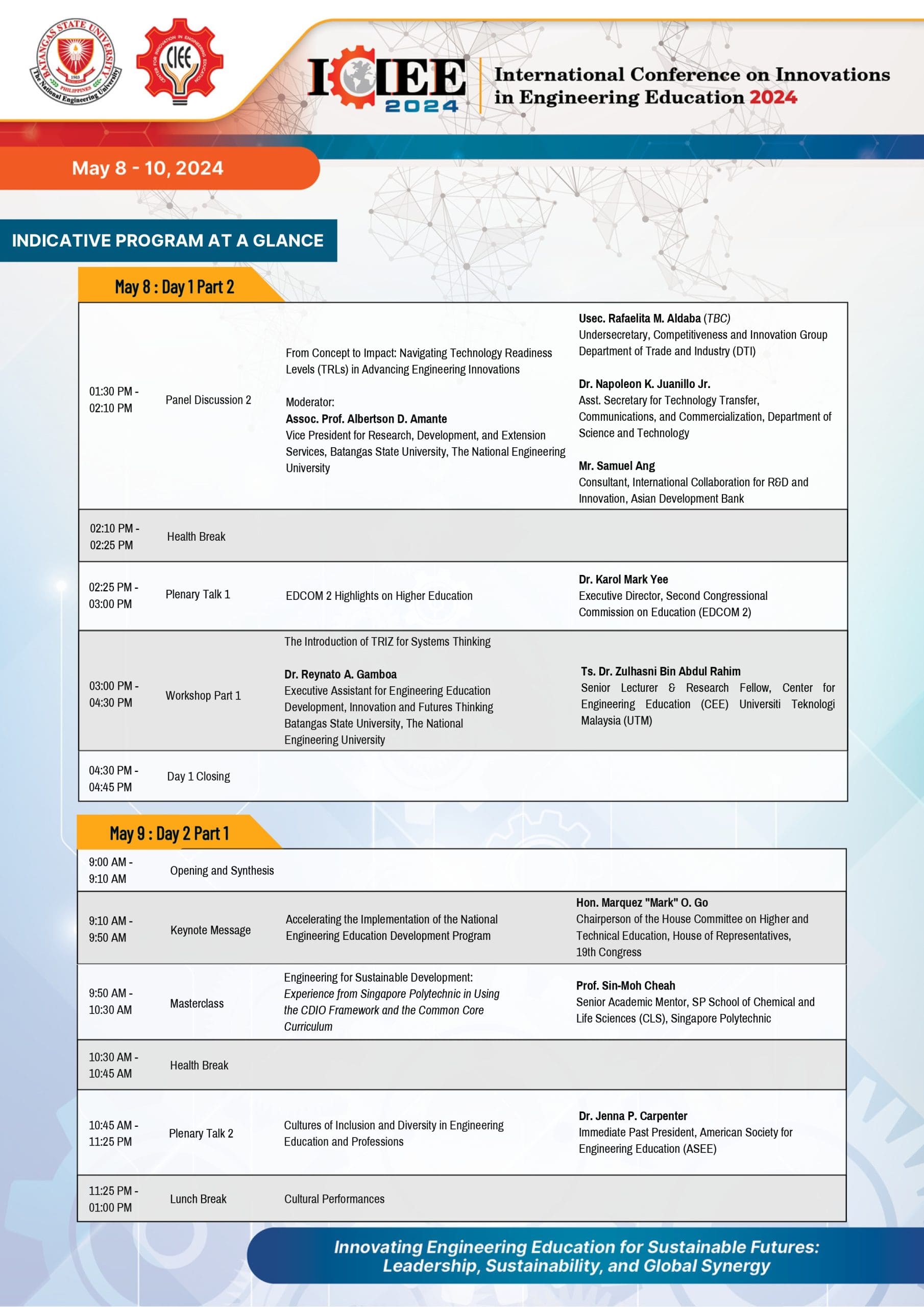
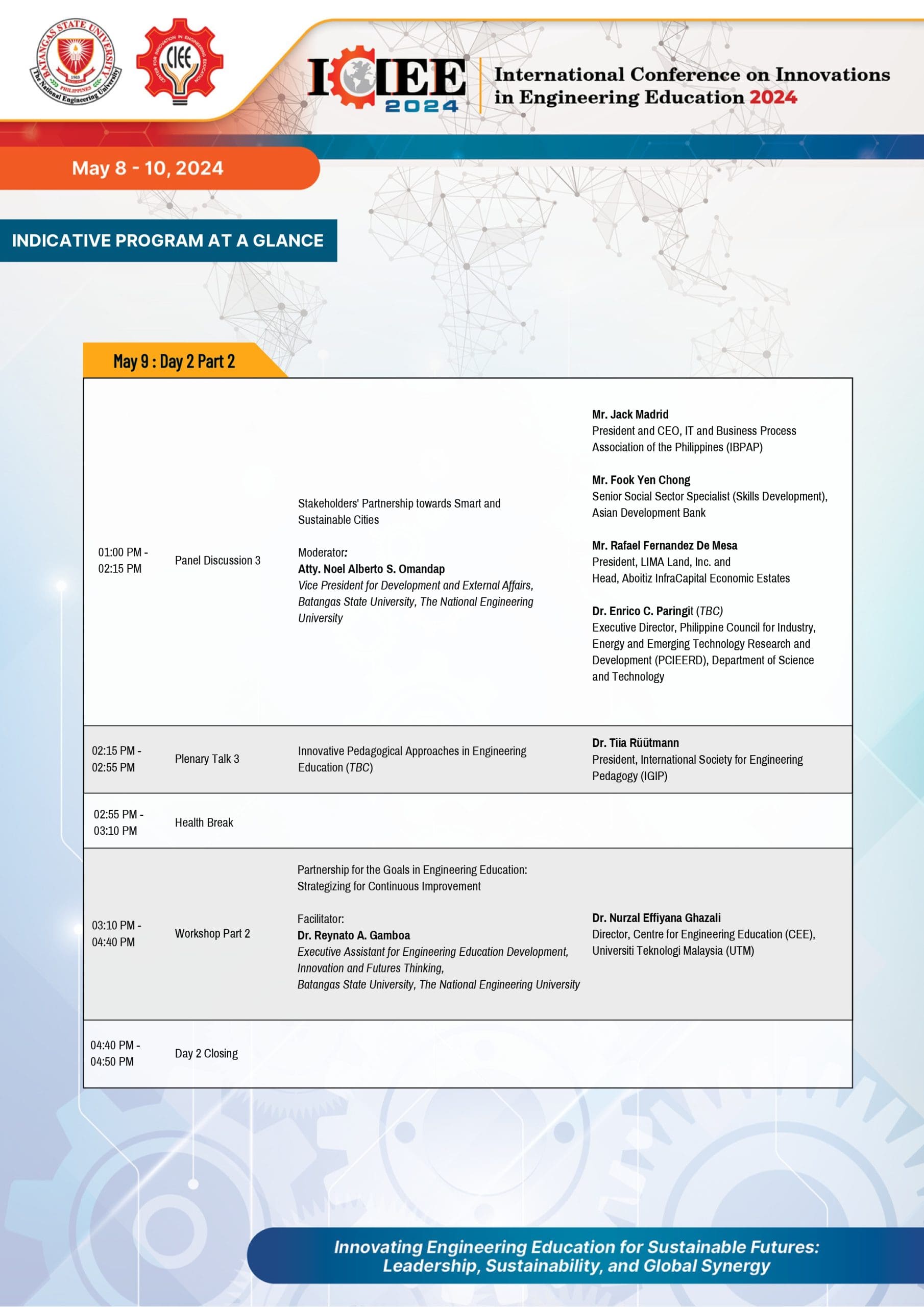
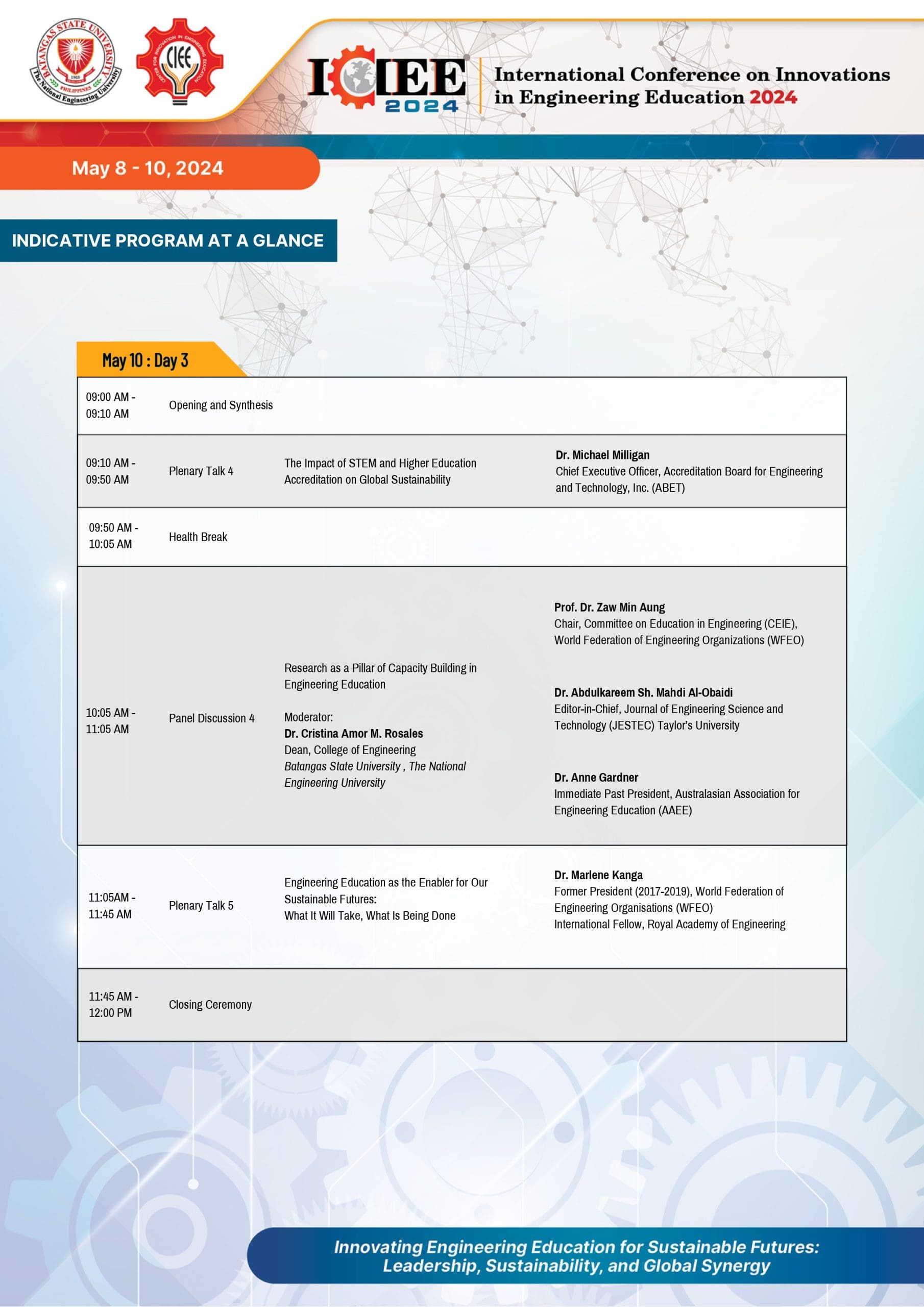
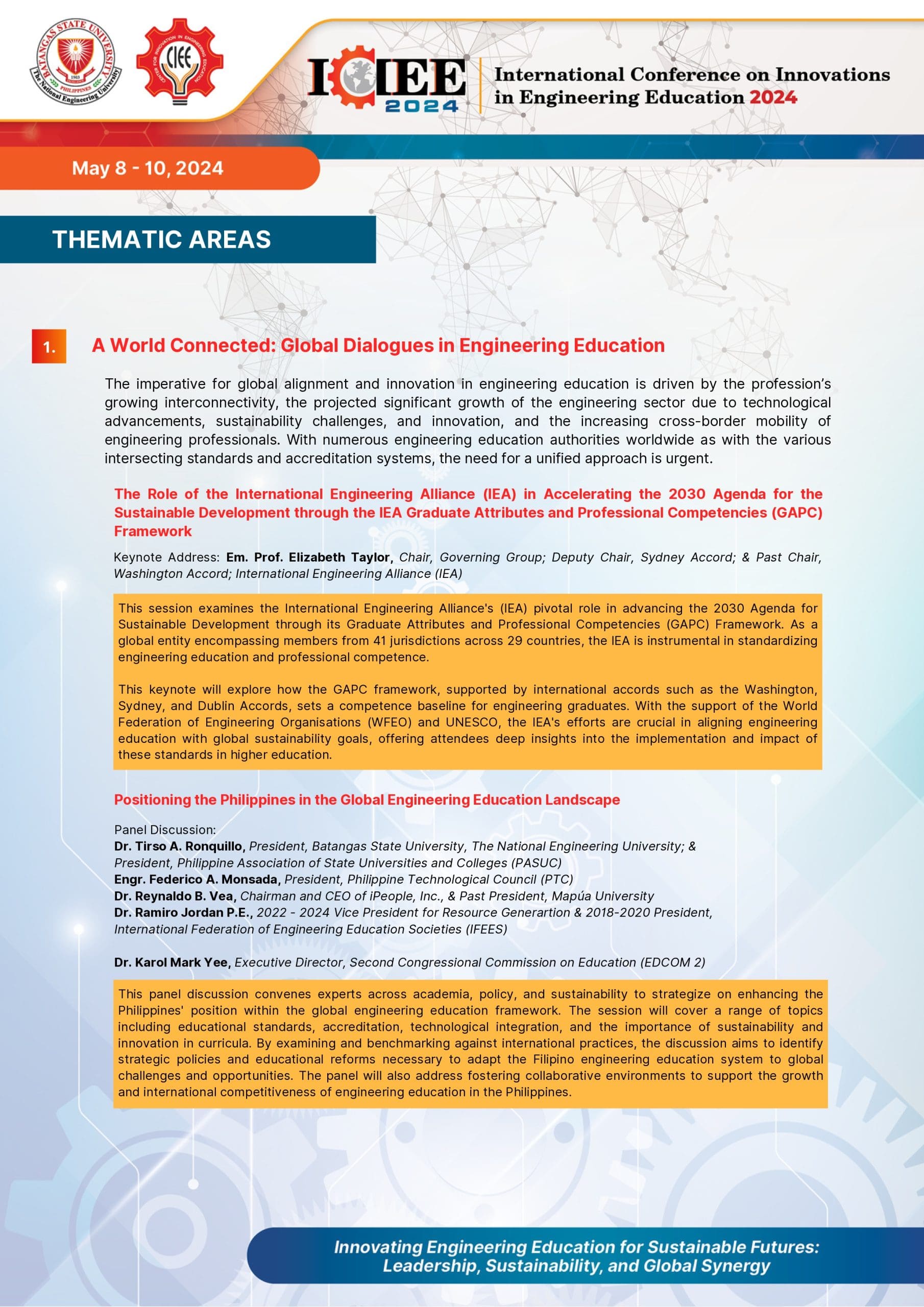
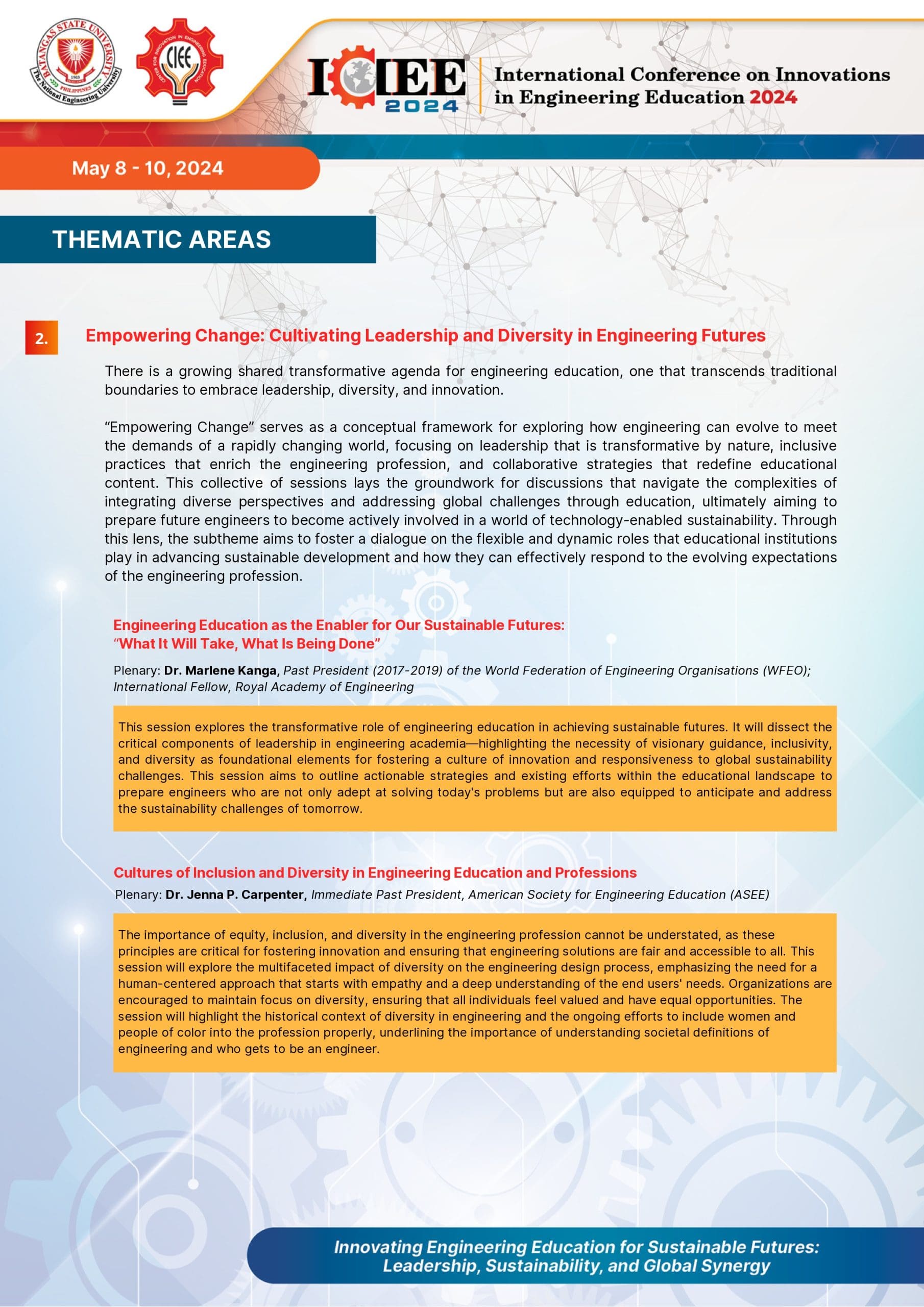
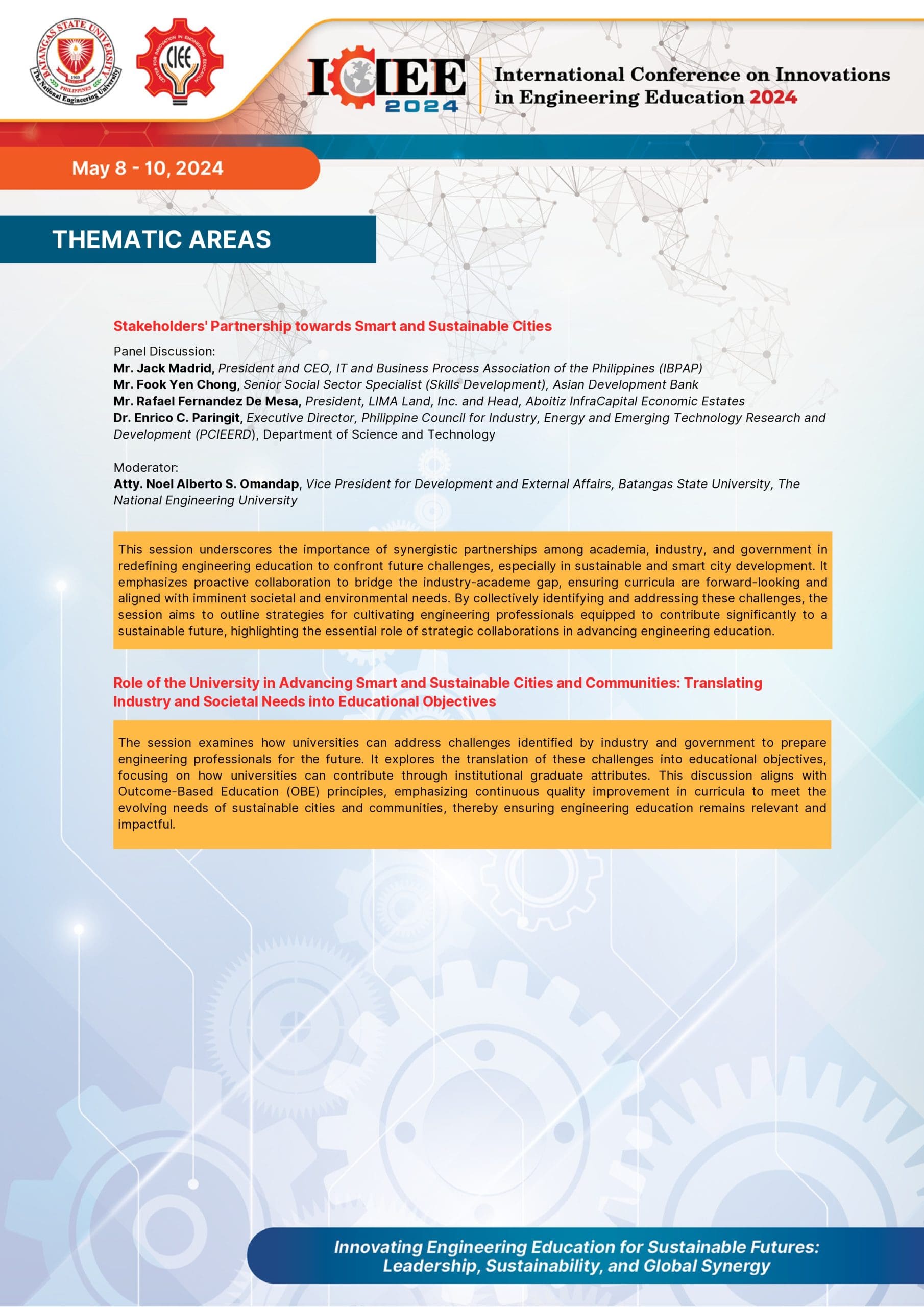
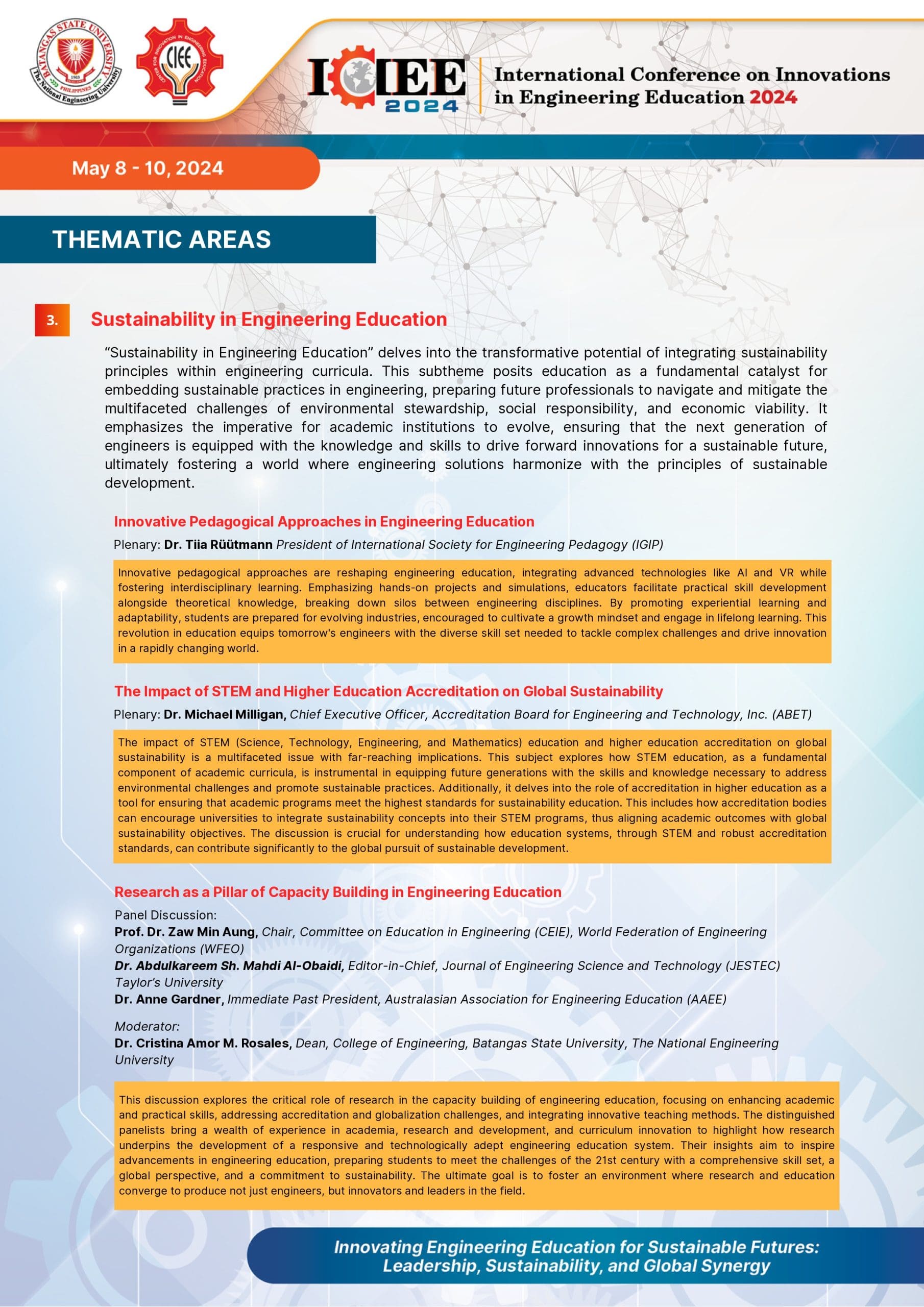
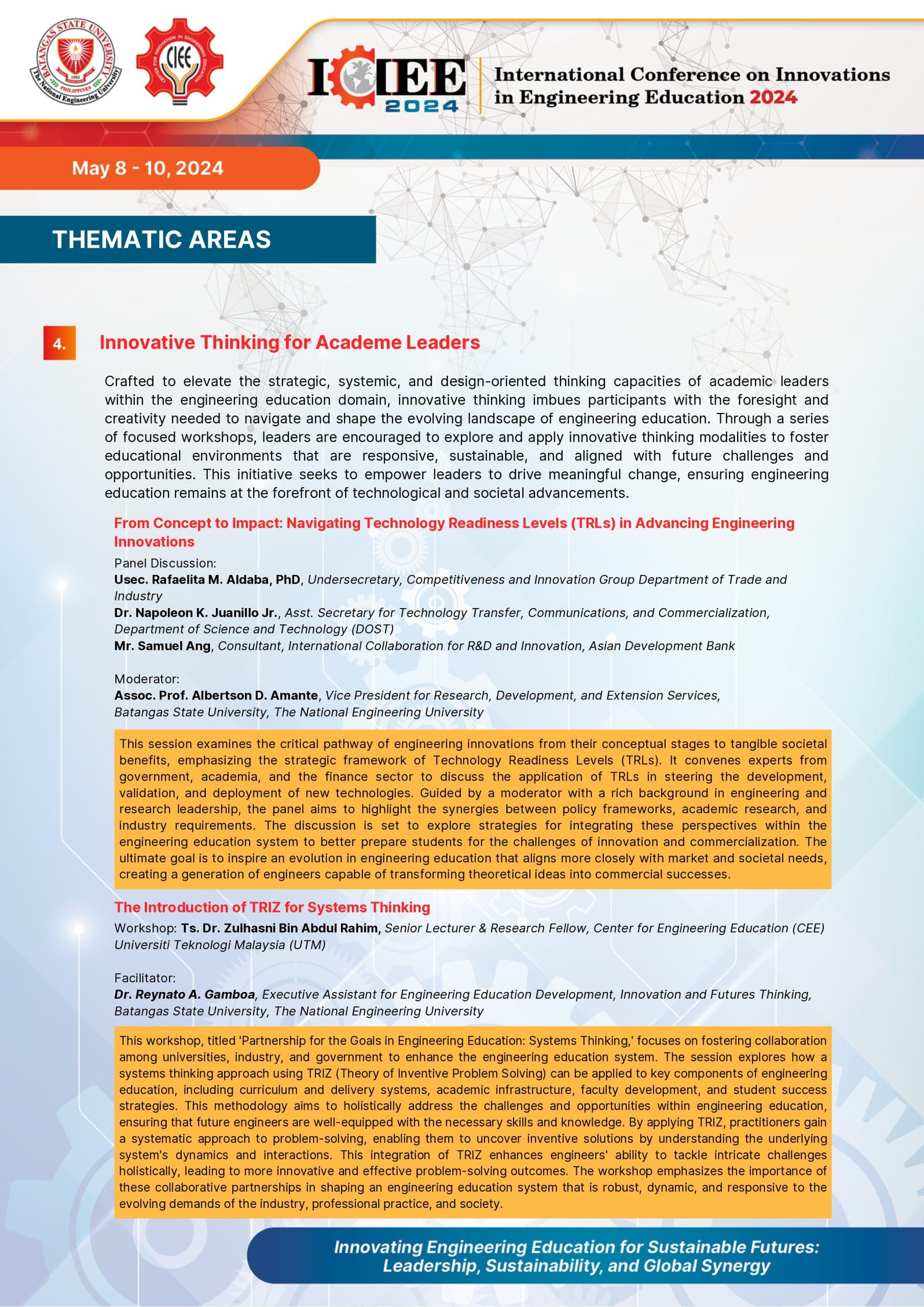
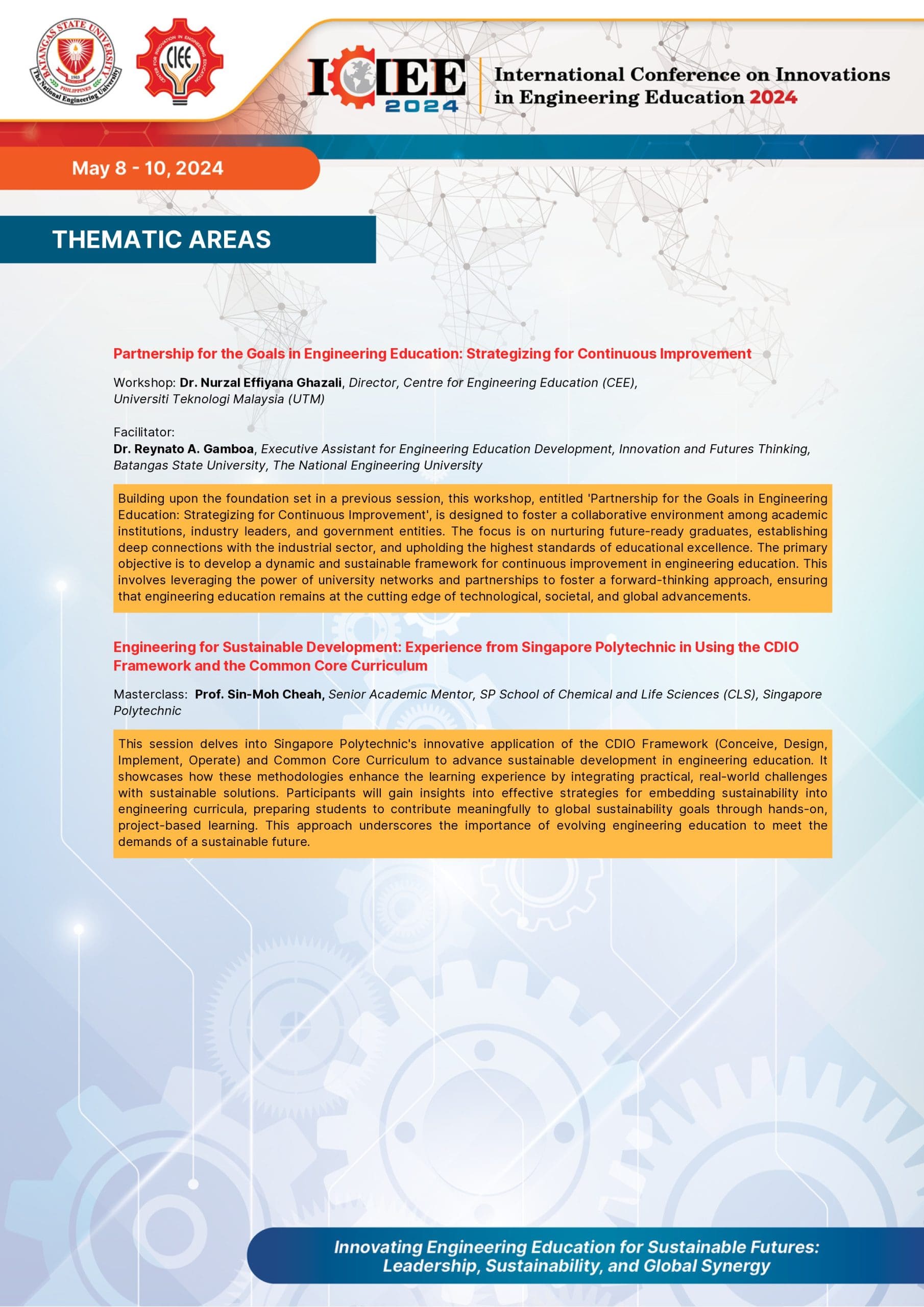
Partners & Collaborators
Partner
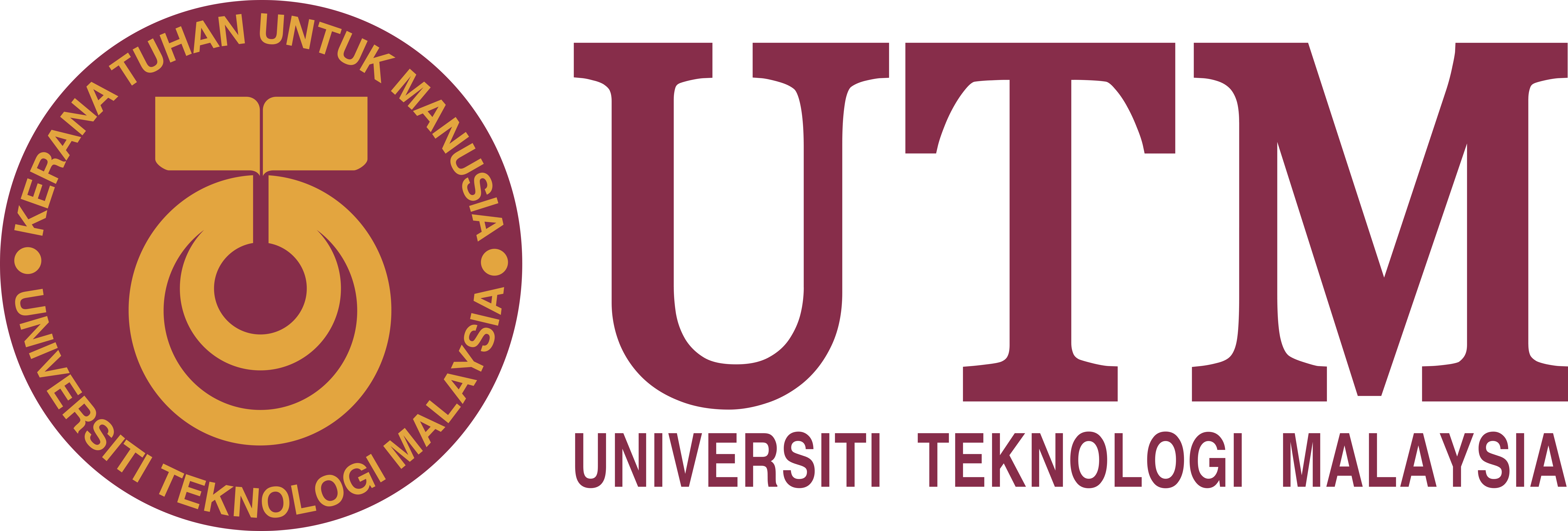
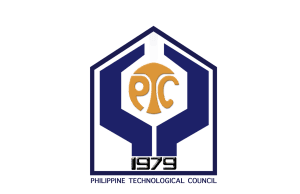
Institutions

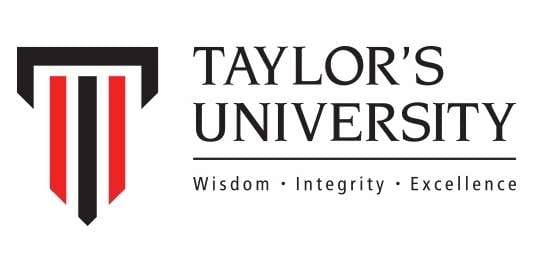
Collaborators

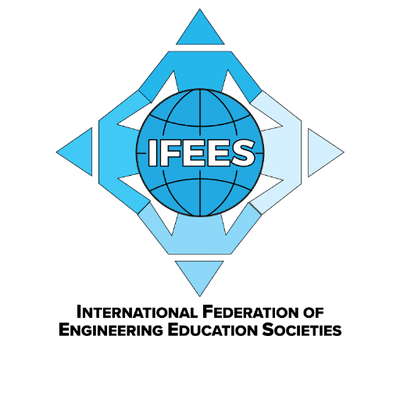

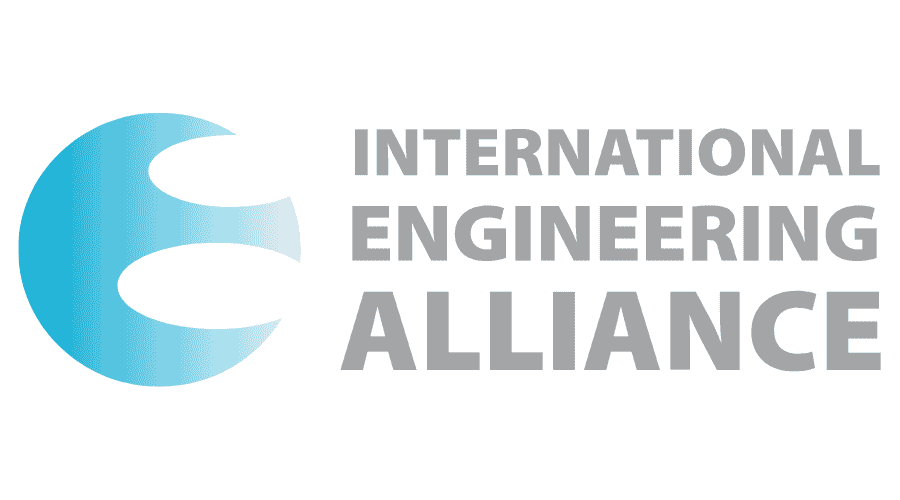
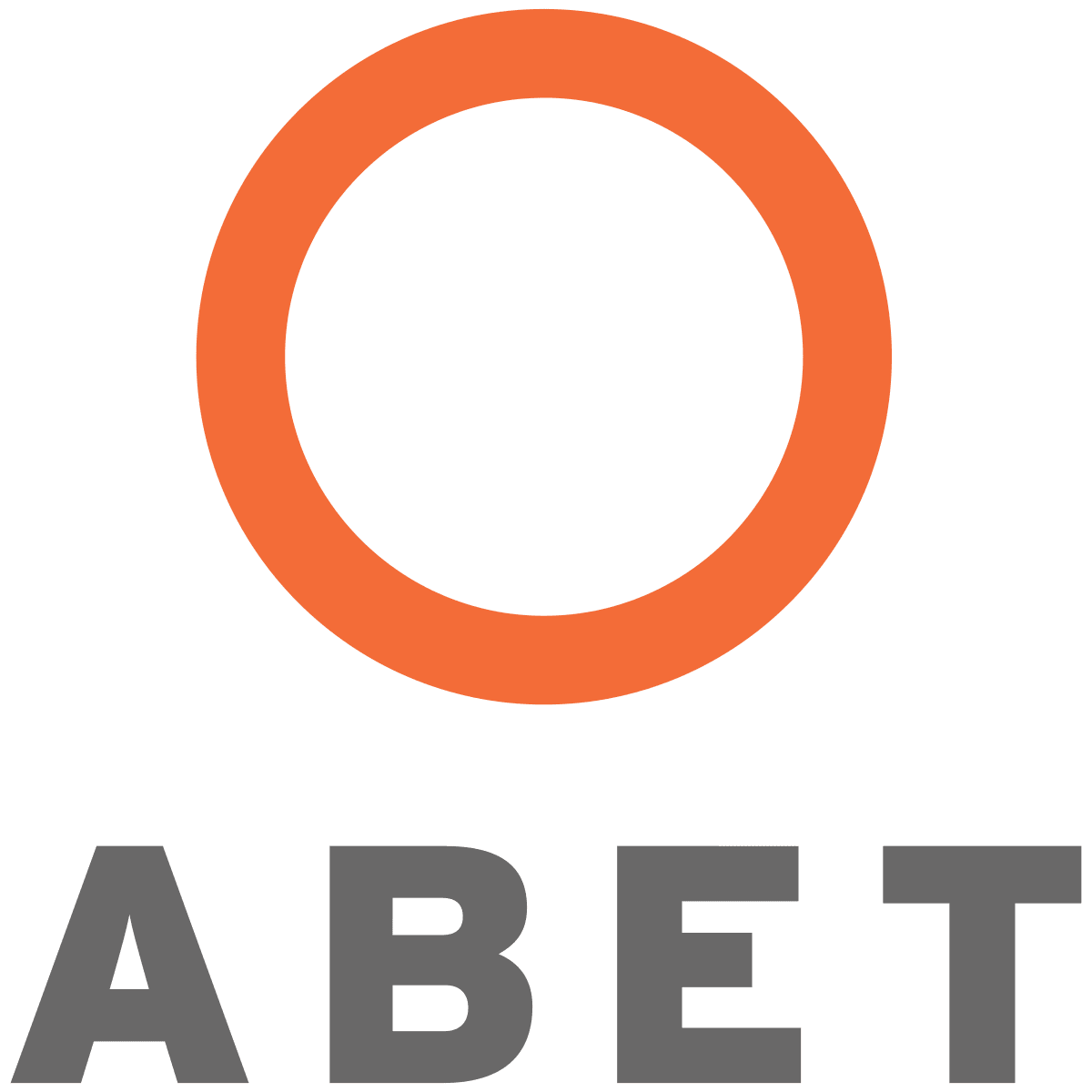
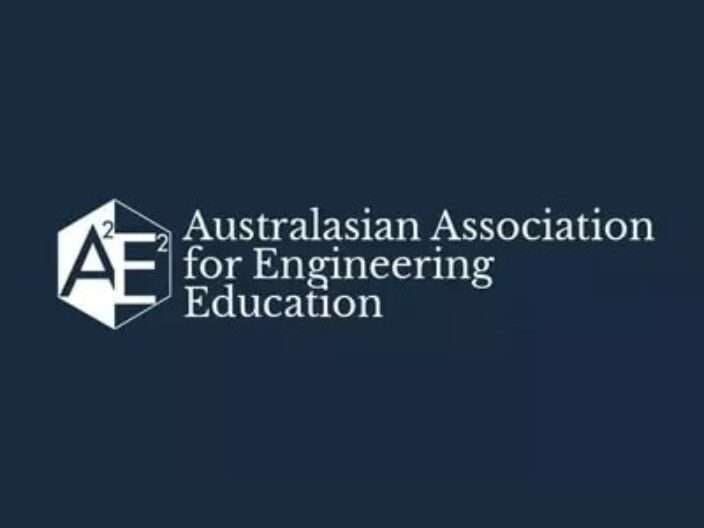
CENTER FOR INNOVATION IN ENGINEERING EDUCATION
Address: 3rd Floor, STEERHub Building, Batangas State University Alangilan Campus, Batangas, Philippines 4200
Email:
ciee.secretariat@g.batstate-u.edu.ph
Telephone:
+6343425-0143
Telephone: local 2411
BATANGAS STATE UNIVERSITY
The National Engineering University
A premier national university that develops leaders in the global knowledge economy
- 21
- 5,815
- 2,335
- 934

